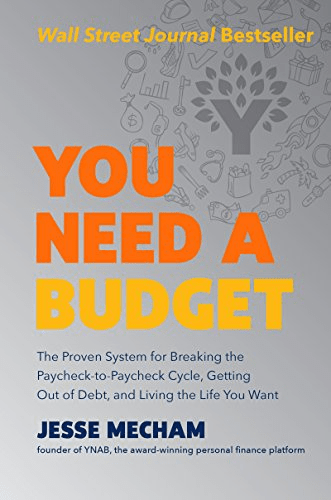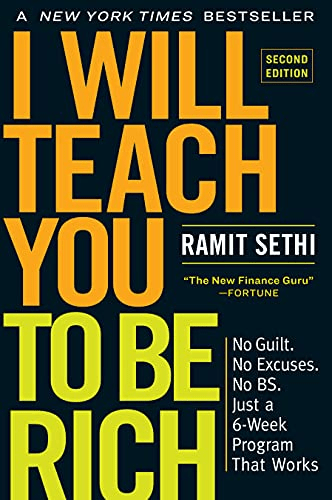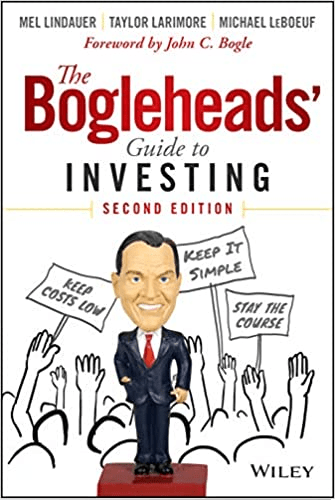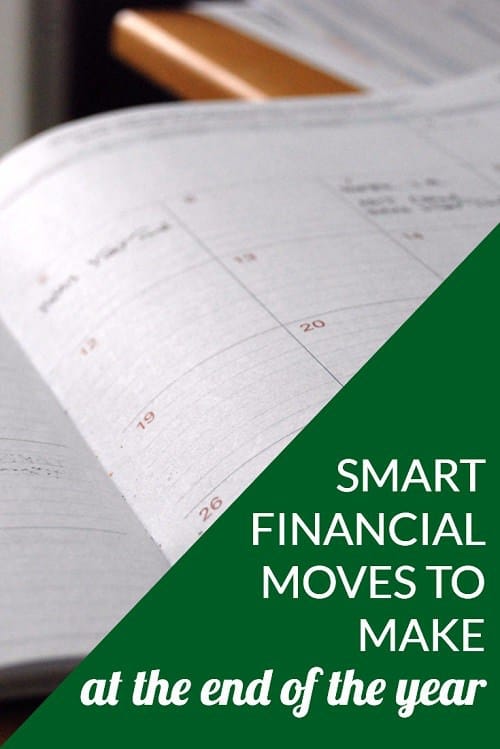This post may contain affiliate links and Corporette® may earn commissions for purchases made through links in this post. As an Amazon Associate, I earn from qualifying purchases.

Readers, what end-of-year financial steps do you plan to take in the next few months? Besides making sure to buy a new planner (if you’re a paper-planner person, that is) and finish your holiday shopping, another thing to do before the end of the year is to take time to focus on your financial situation — and it’s been far-too long since we talked about end-of-year financial housekeeping.
Besides quick things like reviewing your W-4 deductions to decide if they’re still appropriate and checking that your employer has your current address on file so that you’ll definitely receive your W-2, taking these seven year-end career and financial steps will build a good foundation for the months to come:
1. Take a look at how much you’re saving for retirement. “If your salary changed during the year, or if you turned 50 and are newly eligible for the ‘catch-up’ contribution, you may wish to adjust your contribution,” advises Lisa Shuster, president of WorkMoreHuman, an HR consulting company in the D.C. metro area. “Don’t forget to take full advantage of your company’s match.”
2. Review the current year’s expenses for medical and/or dependent care. Even if the next year won’t play out exactly like this one, taking this step will go a long way toward making sure you choose the right allocations for your flexible spending accounts (FSAs) for health and dependent care in 2017. “You don’t want to overestimate and leave money on the table, or contribute too little and not take advantage of the tax benefits,” says Shuster. Don’t forget to check the deadlines for using the money in your health care FSA and dependent care FSA.
3. Decide what to do with your bonus (if you’re lucky enough to get one). “Whenever you get a bonus or large sum of cash at once, no matter what time of year, it’s a good time to review and analyze your financial goals to determine the best use for the funds,” says Shannon McLay, founder and president of The Financial Gym. She recommends taking these financial steps (in order of priority): making sure your emergency fund has enough for at least six months of monthly expenses, paying off high-interest debt, putting money toward an upcoming expense (e.g., buying a home, taking a vacation), and raising your IRA contributions to the limit.
(In honor of this series’ original title, Tales from the Wallet… here’s a great wallet we recommend!)
4. Call in an expert. McLay highly recommends asking your accountant to prepare an estimated tax return. The time you’ll spend compiling the necessary forms and information will be more than worth it “if you need to make financial moves that have to happen within a calendar year or set aside funds you may need to pay when you file,” she says. “A few hundred dollars with your accountant in December could save you thousands by April.” McLay also suggests looking at your brokerage account and determining, based on what you’ve made this year, whether you should sell anything to take a gain or a loss. You might want to ask your financial planner for advice.
5. Take stock of your career and figure out what you want. Did you meet the professional goals you had for the current year? Can you think of some S.M.A.R.T. goals for the new year? (These will probably be more enjoyable to create than the goals you had to come up with for your annual performance review!) If one of your goals is to make more money next year, see #6 below.
6. Before you ask for a raise, be prepared. Ask a Manager’s Alison Green wrote a helpful guide on asking for a year-end raise — with too many tips to revisit here — and this article by Susan Adams of the Forbes’ Entrepreneurs team recommends a very specific time to ask: Thanksgiving week, as the office will be quieter than usual. Still, says McLay, “If you have ongoing dialogue with your boss and you have done your research and feel that asking for a raise is appropriate, then ask away, no matter what date is on the calendar.”
Donate to charity. Do it now so that you can include the donation on next spring’s tax return. The IRS provides some important advice on its website, including these rules: give money to a qualified charity, get a receipt or other statement for your donation, and know that household items must be in “at least good used condition” to count. The following are not tax-deductible: unfulfilled monetary pledges to charities, certain donations for which you received something in return (such as attendance at a gala), and contributions to political candidates.
What career or financial steps are you planning to take before the year is out? Are there things you always do at the end of the year regarding your career or money situation? Do you like to set professional goals for the next 12 months? Are there certain financial steps you always mean to take but never end up doing?
Psst: these are some of our favorite financial books, especially if you’re fairly new to thinking about personal finance!
These are some of our latest favorite financial books for beginners:





Further reading:
- 20 Money Moves to Make Before the End of the Year [U.S. News & World Report]
- 4 reasons to buy a home before the end of the year [Business Insider]
- Seven money moves to make before the end of the year [Washington Post]
Pictured: Pixabay![]()


Marshmallow
This is a timely topic for me.
My husband and I are both struggling to pay down large amounts of credit card debt, brought on by a combination of low-income background, bad financial decisions in our younger years, and an expensive surgery just when we had started making real progress recently. I also have stereotypically high law school debt. He makes a good middle-class income (but not bringing home bank) and I’m currently a federal law clerk but returning to Biglaw next year.
I often feel overwhelmed and ashamed when thinking about all of it, and it’s really hard to feel like our incremental progress is doing anything long term. Our current plan is to try to transfer the credit debt around to a 0% APR promo this year, and then use my clerkship bonus to wipe it out when I go back to my firm.
Any tips on how to look forward and be productive so I can move past the emotions that are all tied up in this? I often feel like a failure, even though I’m professionally and personally successful. I know on a rational level that I can’t change the past and whatever I’m doing now to fix the situation IS eventually going to add up. But in the meantime I’m pretty miserable about it.
Basically Twins
We are basically in the same situation, minus the clerkship/bonus part. My partner and I decided to do Dave Ramsey’s Financial Peace University with our church friend group. FPU is Christian and deals with money issues with that focus, but I’ve found that the way he approaches paying off debt and being disciplined is exactly what we needed. One of us is from a low-income (first gen) family and the other is from a middle class family with a heaping ton of debt–so we both lacked any kind of support or way to deal with our money problems.
Some people disagree with Dave Ramsey because he tells you to do the debt snowball (you disregard interest and start knocking out the smallest debt first) and it makes sense why some people would disagree as these things start to rack up more interest. However, for us, paying off small loans, cards (that we used to buy super stupid stuff when we were low-income), and medical bills has been so encouraging and rewarding. We also funded a small emergency fund that has come in handy a few times already.
I realize this is not for everyone, but I highly encourage you to work with someone or some kind of program to put a plan together. I don’t necessarily agree 100% with everything the Ramsey programs say, but we chose it because we have seen friends pay of a TON of debt while on the program and these are folks who make half of what I make (without counting my partner’s income). Reading the stories of other people who have done this is one of the things that really inspires and motivates us on a daily basis.
The program includes lots of great tools that you can find elsewhere though. Things like a zero-dollar budget app, like EveryDollar (the idea is that every dollar has a name and your budget should be at $0 when you are done making it–plus a small padding that you pretend is not there just in case your budget is off), doing a monthly cash flow plan, going on debt fasts (there are a ton of great blogs on this), using cash when you can, etc.
Most importantly, don’t feel embarrassed or disheartened about your situation. I know exactly how that feels, but now I feel empowered and thankful that I have a great income to make up for some seriously stupid mistakes I made as a poor kid. Paying off that first tiny loan was like standing up to my fear. Now, I’m so comfortable and excited about our prospects of a debt-free future that I do not mind the effort required to keep up with it (and I’m actually excited to look at our cash flow sheets).
Basically Twins
*Sorry, that should read “spending fasts.” :)
Marshmallow
Thanks! Based on what I’ve read about the Ramsey thing I think it is not for us, but I appreciate the tip and commiseration.
In House Lobbyist
We don’t follow all of the Dave Ramsey rules but it has been very helpful for us. I like that he has a fairly simple plan that you just keep working. But he is big in personal responsibility, living with a budget and cutting unnecessary items out until you can pay cash. I really like the Total Money Makeovet book and I like his podcasts. The podcasts are good because you can skip over parts you don’t care about.
Miz Swizz
We had about 1K in credit card debt and about 25K between 5 student loans when we got serious about paying them off.
We did the debt snowball and it was so psychologically rewarding to pay something off that it worked well for me but my husband started to push for the higher interest items once we’d paid off a few smaller debts and had a little more money to put toward things. It also helped to set a target pay-off date for the debt you’re working on. We always high-fived and took a minute to bask in a $0 balance and then it was on to the next one.
It took us 3 years to pay everything off and we also saved up for a down payment on our home. Honestly, we could’ve paid everything off a little quicker but we purposefully wrote some fun money into our budget and that helped keep our minds right. One of the Dave Ramsey-isms I hear about is eating rice and beans and that wouldn’t have been sustainable for us.
Basically Twins
Congratulations! That is awesome! We are doing a mix of this too, knocking consumer debt out first and then moving to our student loans (even if some are smaller than on our credit cards) because of the interest.
Yes, Dave Ramsey talks a lot about sacrificing, etc. We have taken a more moderate approach (though still aggressively paying off debt), but still live in a very non-Ramsey approved place that we love because of the easy commute and because we just love it, and we also have a sizable chunk of the budget for fun and restaurants (we live in a foodie paradise). We also have expensive gym memberships/workout class passes because that’s what we love to do. All that to say, you can find the same principles elsewhere (debtsnowball, etc.) and still do what fits your life best!
Based on the numbers given in the workbooks, biglaw people (and other professional equivalents) are definitely not the target, so I think he really tries to drive home the point of not living outside your means, learning self-control, etc. Thankfully, our income allows for all of it (and no rice and beans, unless we want them!), so I think we are definitely “unique” when it comes to this class.
Anonymous
Think for the long term: over 10-20-30 years, you will be fine. Your new habits will make you fine. And they will fix what is wrong now. Take the right steps now. And don’t forget to breathe.
I read on the interwebs yesterday how law school is mainly populated by upper-middle-class people (which I found to really be lower-upper-income people). So lots of grandmere pays or parents pay and also give you a downpayment on a house. Also, BigLaw is not normal, either. So don’t look around too much and compare — will not make you happy and will likely not give you useful life lessons.
Look at what the Colorado River did over time.
Marshmallow
YES re comparisons with my peers, holy moly. I try to remind myself that literally everyone I know who already owns a home had substantial family help.
I often feel like I don’t “belong” in the legal profession because I can’t identify with the lifestyle of a lot of my peers. Even once we get on stronger footing, I wonder if some of that will always be there.
Anon
I did exactly what you did – had credit card debt as I left law school, barely made a dent while clerking, and then used my clerkship bonus to wipe it out when I started at a firm. It wasn’t an immediate fix for everything, but it felt so good to get rid of a lot of that debt at once.
I also felt tons of anxiety and shame about the whole thing for a long time. You know what helps with the anxiety? A plan. I hated sitting down to look at my finances – but the only way to get through that is just to wrestle with them, head on, until it doesn’t feel so much like a judgment and just feels like numbers.
I never had a system – other than about a million kitchen table conversations, scratch-pads of financial goals, occasional check-ins with Mint, and a lot of annualized budgeting (which I find to be slightly more useful). You can do this! I know it feels overwhelming and shameful, but it doesn’t have to be – it’s just numbers, after all, and you’ve spent the last few years investing in your future. You can do this. Don’t let the anxiety/shame spiral prevent you from looking clear-eyed at your money and finances and figuring out how to make it work. I am totally rooting for you and I know you can do it.
Marshmallow
Thank you!
commenter
Just chiming in to say that I never thought about looking at annualized version of my budget, just monthly. After reading your comment I put together a quick annual version and it made some things so much more obvious – I don’t know why it never occurred to me, thanks for the idea!
Dot
I ended up settling out some of my credit card debt because my credit was already so bad. The year and a half it took was so hard but I am much better off now. Even still, I currently have little savings, a $10k car loan (at 8.5%!), and barely survive check to check. I have one credit card that I try not to use much. I will get ahead with my bonus, pay half the car off and put the rest in savings but my income will decrease next y ear when I max out my 401K. There’s a part of me that REALLY wants to just pay the damn car off and have that money. But I know it’s not smart to have so little in savings for emergencies.
I also have insanely high law school loans. It’s hard sometimes. I want to just review my mint.com and look at how long it will take to pay stuff off but I can’t. Have a plan. Stick to the plan and move on. At least you’re fixing it. Some people never do.
Mindy
If you haven’t already, definitely refinance your law school loans to be lower interest so you can focus on paying off the higher interest CC debt.
Between good rates I had plus refinancing the higher ones, then focusing on paying off the highest interest rate loans first, I eventually got to paying them down, but I remember being freaked out about the total in the beginning.
Wildkitten
I loved moving my credit card debt to personal loans. The interest rate wasn’t always lower (some of my CCs were at like 8% interest) but I can see progress every month instead of having revolving interest get added each month when I made a payment.
Winter
“Finish” holiday shopping?!?
It’s October….I haven’t even started thinking about holiday shopping!
Kate Antoniades
Oh, I haven’t done a thing either — I just meant that you want to finish it before the END of the year, right? :)
Celia
Update your life insurance policies, including addresses and social security numbers. My ex just died and I am checking the information I have on file with my insurance company.
Ellen
Dad handels all of this for me. I asked him just now and he is planning on selling some of my stock to take capital loses’s to ofset capital gain’s. I have no idea what he was talking about, but know that he has managed my p’ortfolio for my whole life and want’s me to get married so that my husband can do it for me. FOOEY b/c the men I date have been dummies and I need a smart guy so that I can stop workeing already. FOOEY!
Mini-bonus
If you max out your 401K or hit the SS wage ceiling, use the extra $ in your paycheck as found money and either sock it away or use it to fund holiday spending so you’re not going into debt on it and can just pay as you spend.
It’s not a ton of $ freeing up, but it isn’t peanuts and would be easy to fritter away with nothing to show for it (which is OK if that is what you choose). But many people get found $ like this in the 4th quarter.
Anon
Yes! This is a great way to build in an emergency fund or savings account or start investing – take that extra $ from social security and contribute it to savings.
anon
Question for the marrieds (or tax-minded people): I’m getting married in February. Do I need to do anything different when I file my taxes in April? I assume not since I was not married this year, but just wondering. Also, do I need to do anything differently tax-wise ovr the course of the next year (prior to filing my 2017 taxes)?
TIA
Anon
Not a tax person. But based on personal experience, if you are high income earners, you may need to adjust your withholding so that the government is taking more each paycheck. We got hit with a nasty surprise the first year that we were married and both of us were making real salaries, as our prior withholdings were insufficient to cover our total tax liability and we owed a bunch of money. I think it was because we got hit with the AMT, but I don’t totally remember the details.
anon
thank you. my income next year will be ~200k and his will be ~130k. I will look into adjusting our withholding amounts.
Leatty
+1. We were hit with a $6k tax bill this year because we got married last year. I immediately changed my W-4 once I learned of it. DH didn’t until this week. Ugh.
Sydney Bristow
We had the same issue, although if I remember correctly our federal tax withholdings were fine but I had to change my W-4 to withhold more for NY state taxes. We file separately and I got a federal refund but had to pay the state. I wasn’t assessed a penalty from the state, but it seemed that I would be penalized going forward if I didn’t withhold the correct amount in future years.
DC Anon
Yup, my husband forgot to increase his withholding the year we got married, and we ended up owing $11k more in taxes as a result. Not fun. It definitely makes sense for both of you to adjust your withholding in January, even before you get married.
Wildkitten
No, you won’t be married for 2016 taxes.
Anonymous
Agree with others.
Nothing to do this tax filing season (2016 taxes payable by April 2017).
But starting with your 2017 paycheck, withhold at the single rate (even though you will be married).
If your or DH forgets, there may be a big bill may be due April 2018.
Wildkitten
News clips re: Ivanka: http://www.elle.com/culture/career-politics/news/a40236/ivanka-trump-boycott
Life Happens
Threadjack…
My mother’s family is from Lebanon and they fled in the 1920’s. My grandmother left behind her sister and never, ever went back, talked to us about it, or raised us in the culture. I am dying to know about my family, who they were, why she left, etc. I’ve been working with an organization that reunites people with long lost family in Lebanon – mainly people who fled in the 20’s due to the civil and religious wars in the country. Today, they contacted me to let me know they have located my grandmother’s sisters children (i.e. my mom’s first cousins).
Long shot — does anyone have experience in this? Has anyone does this? Has anyone been to Lebanon? Is it dangerous – really? Thoughts? Ideas? I am super anxious and nervous and curious and fascinated all at the same time.
Shopaholic
Beirut is quite safe (my dad travels there for work frequently and my mother has been quite a few times to visit) I think. I think other areas of Lebanon may be a bit more dangerous.
I think this is fascinating and I would go if I were you, especially if you’re going to be going to Beirut (which is also quite lovely – it’s on my list to go visit soon!)
Anonymous
Congrats on finding long lost family and I would definitely recommend a visit if you can (although admittedly I have a high danger tolerance threshold)! I used to go to Lebanon a lot (I was living in another Middle Eastern country), but haven’t been there in about ten years. In general, I always found Lebanon to be safe, provided you are aware of your surroundings, educated about the country, and regularly follow the news for current developments. Beirut is a modern and fascinating city and many other parts of the country are worth a visit. That said, certain parts of the country are off limits to foreigners (especially many areas in the south controlled by militias) and the current Syrian refugee situation has also severely impacted a number of areas, so you should research the specific places you wish to visit (including specific areas of Beirut, if applicable) and make sure your allowed to visit them. This organization you’ve been working with should have advice on that. In general, Lebanon feels stable and safe at any given moment but has a history of falling apart very swiftly (although fortunately infrequently), hence paying attention to current events. I was in Beirut for vacation weeks before the 2006 Israel-Lebanon war and everything felt safe – a month later the friend I was visiting was evacuated in the mass evacuation of US citizens. Overall, I wouldn’t hesitate to visit Lebanon again and hope to do so in the future.
Also, the food is amazing. Worth going for the food alone.
Jessi
Can you not take out a bank loan at a lower interest rate and then use the bank loan to pay off credit card and smaller debts? It will end up costing way, way less in the long run as the interest won’t pile up as quickly. As it will all have been consolidated into one debt you can focus all of your money paying off into one place